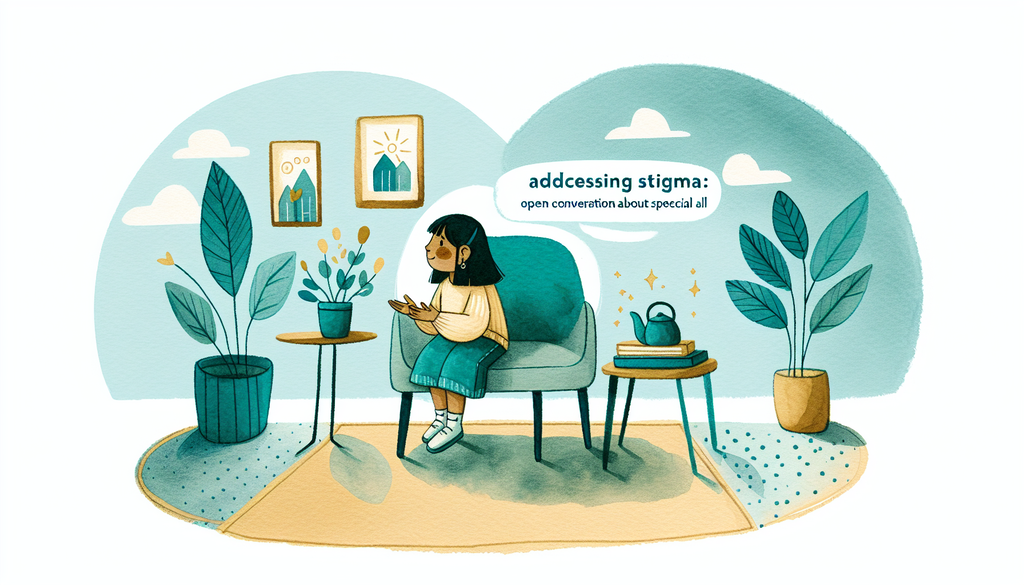Addressing Stigma: Open Conversations About Special Education Needs

When our children experience difficulties or show talents beyond the norm, it becomes essential for us, as parents and caregivers, to broach the conversation about special education needs. These open dialogues are crucial not just within our family, but also in our community – schools, neighborhood, and wider society. This facilitates inclusive understanding, acceptance, and the creation of appropriate environments and opportunities where every child can thrive.
When discussing special education needs and gifted education, it is important to understand that it isn’t a mark of disability or exceptionality. It simply recognizes and caters to the diverse learning needs of our children. Every child is unique - they learn and think differently, have talents, and face challenges in varying degrees and forms. The aim of this education is to address and cater to this diversity [^1^].
Our previous post on Empowerment Through Knowledge guides on ways parents can educate themselves about their child’s needs to become better advocates and supporters. But how can we encourage these conversations further and tackle prevalent stigmas?
The Power of Open Dialogue
Open communications start within our homes and daily life. It involves maintaining an open and honest communication line between you and your child, empathetically expressing your observations and concerns while being observant and accepting of your child’s feelings and responses [^2^]. A non-judgmental, understanding stance helps build a safe space where the child feels valued and understood. Similarly, open dialogues with teachers and school authorities, as discussed in our post on Effective Communication with Your Child’s School Team, keep everyone involved informed and collaborative.
Educating Our Community
Promoting understanding within our community is necessary for fostering an environment where our children can grow and strive. This requires actively advocating for your child’s needs, fostering friendly settings like Inclusive Playdates, spreading awareness [^3^], and even stepping into politics and legislation if need be, as discussed in From Playgrounds to Politics.
Breaking Down The Barriers
While we work to foster understanding, it is also crucial to address prevalent myths and misconceptions. These stigmas, personal biases, and ignorance can be tackled from their roots by busting common myths, promoting and displaying success stories, and most importantly, by practicing empathy, patience and understanding[^4^].
Stigma and negative bias stem from poor understanding. In our pursuit of fostering inclusivity and diversity in learning, such conversations can play an essential role. They help us understand our children better, empathize with their challenges, and appreciate their unique abilities, providing the much-needed support to our gifted and special needs children [^5^].
Just as our children are diverse in their abilities and needs, so are the issues and challenges we face. Addressing them in depth is beyond the scope of this single post. However, our other posts provide in-depth discussions and actionable insights into specialized and inclusive learning, giftedness, twice-exceptionality, sleep and emotion management, therapy options, financial planning, legal rights, etc.
Feel free to explore them and engage in these conversations. To paraphrase an old saying, it takes a village to raise a child – a well-informed, empathetic, and inclusive village can certainly help raise a happy and thriving child.
[^1^] Parenting, education, and activities for special needs children [^2^] Open dialogue practices in child welfare [^3^] Impact of awareness in a supportive community [^4^] Busting myths about gifted students and programs [^5^] Supporting your gifted child